Consensus AI search engine is here to help you in your academic research. The purpose of the Consensus AI is to “democratize expert knowledge” by making the results of the research on a given issue available to everyone interested in learning more about it.
There are several successful AI search engines, like You.com, Bing AI, DuckDuckGo AI, and more, but Consensus AI’s intent sets it apart from the rest. AI for scientific research is just making sense, right?
What is the Consensus AI search engine?
What is the Consensus app? Consensus AI search engine is a new search engine that uses artificial intelligence to extract and distill data straight from scientific research in order to provide users with evidence-based answers to their queries. Moreover, it is powered by GPT-4.
We are thrilled to launch GPT-4-powered scientific summaries at @ConsensusNLP 🚀
For any research question, hit the "synthesize" button & our models will deliver a concise summary of the top 5-10 papers/claims.
Less links, less tabs, more efficient research.
More below👇 pic.twitter.com/U6ISajo1GQ
— Eric Olson (@IPlayedD1) March 23, 2023
How does Consensus AI work? Consensus AI search engine uses a combination of natural language processing, machine learning, and blockchain technology to analyze and evaluate web content, as well as to reward and incentivize content creators and curators. Another AI model is then used to read the articles and pull out the relevant information that answers your question. If you ask the “right questions,” each discovery is supported with a confidence level that reflects the number and quality of sources that back it up. Wait, what are the right questions?
What can you search for on Consensus AI? Whether your question is in biology or sociology, consensus can help you find the answers that researchers have found. It means your query has to be scientific. Your question could be something like, “How does spanking affect a child’s development?” or “What factors lead to startup success?” You can also use yes/no questions, such as “Do home crowds impact referee bias? or Does morning sunlight improve mood?
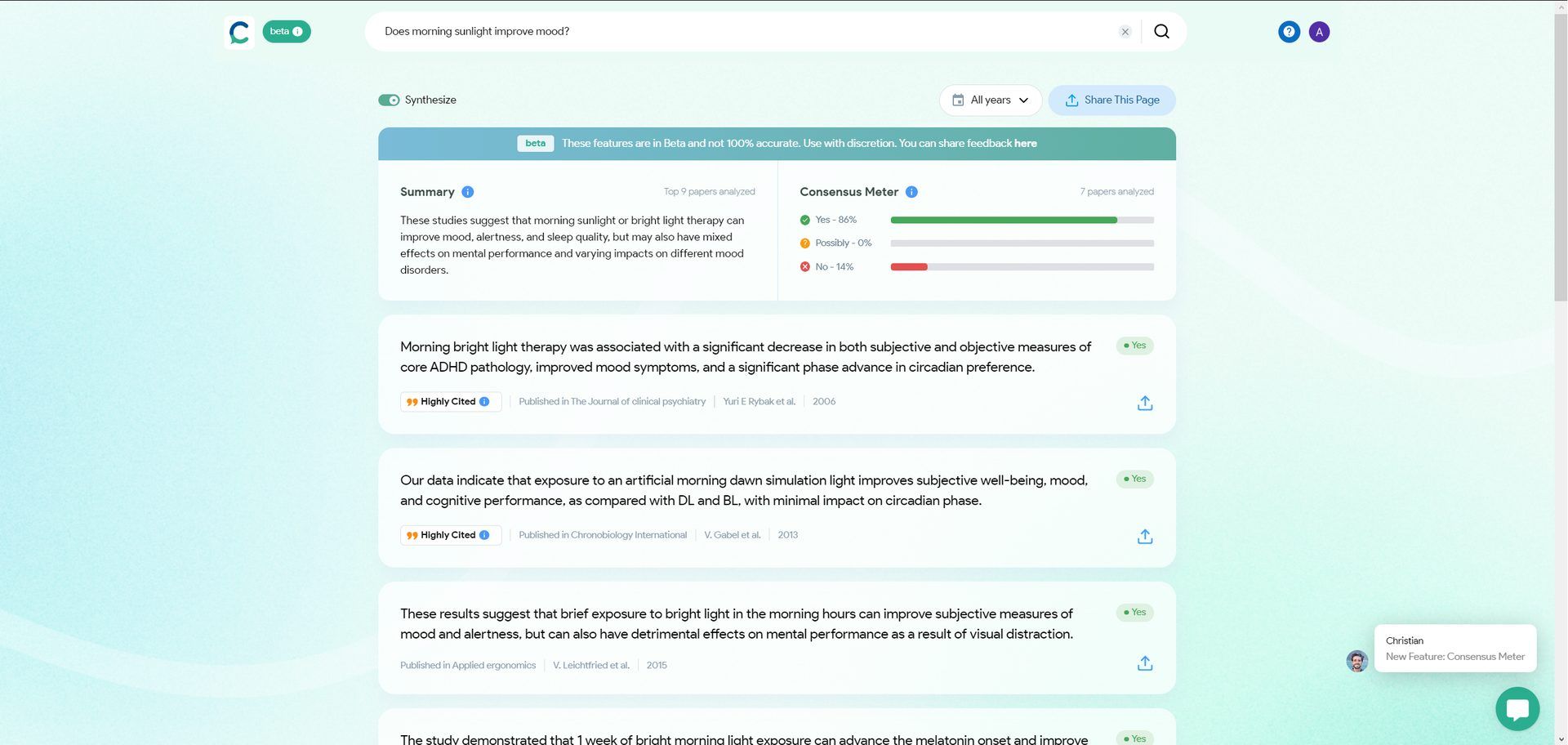
Consensus co-founder Eric Olson has provided some helpful guidelines for using the platform. According to him, these are the Consensus AI’s do’s and don’ts:
- Do: Ask questions about topics that likely have been researched:
- Health: “Does Zinc help with depression?”
- Economics: “What are the effects of immigration on the economy?”
- Psychology: “Does intergroup contact reduce prejudice?”
- Don’t: Ask questions about widely known facts:
- “When is the next leap year?”
- Do: Ask relatively simple direct research questions:
- “Are covid-19 vaccines effective?”
- Don’t: Ask extremely narrow, obscure research questions:
- “What should I do to prevent my Bernese mountain dog puppy from getting hip dysplasia?”
- Do: enter queries looking for the relationship between two concepts
- “Direct cash transfers and poverty”
Consensus AI is a search engine that uses artificial intelligence to rank and display web pages based on their relevance, quality, and trustworthiness.
What are the benefits of using Consensus? Consensus AI search engine can help you save time and energy by providing you with accurate and condensed summaries of studies. There is no need to spend a lot of time researching or reading academic publications. You can check out alternative viewpoints and evaluate the information on your own. Because Consensus does not contain any advertisements, the information it provides is unbiased and accurate. Also, the following benefits are highlighted by the company as reasons to use their product:
- Scientifically-verified results: All of their machine learning queries only consult previously published, scholarly works. The company claims that 400 million scholarly articles from “the world’s leading journals and authors” are available on the Consensus AI search engine.
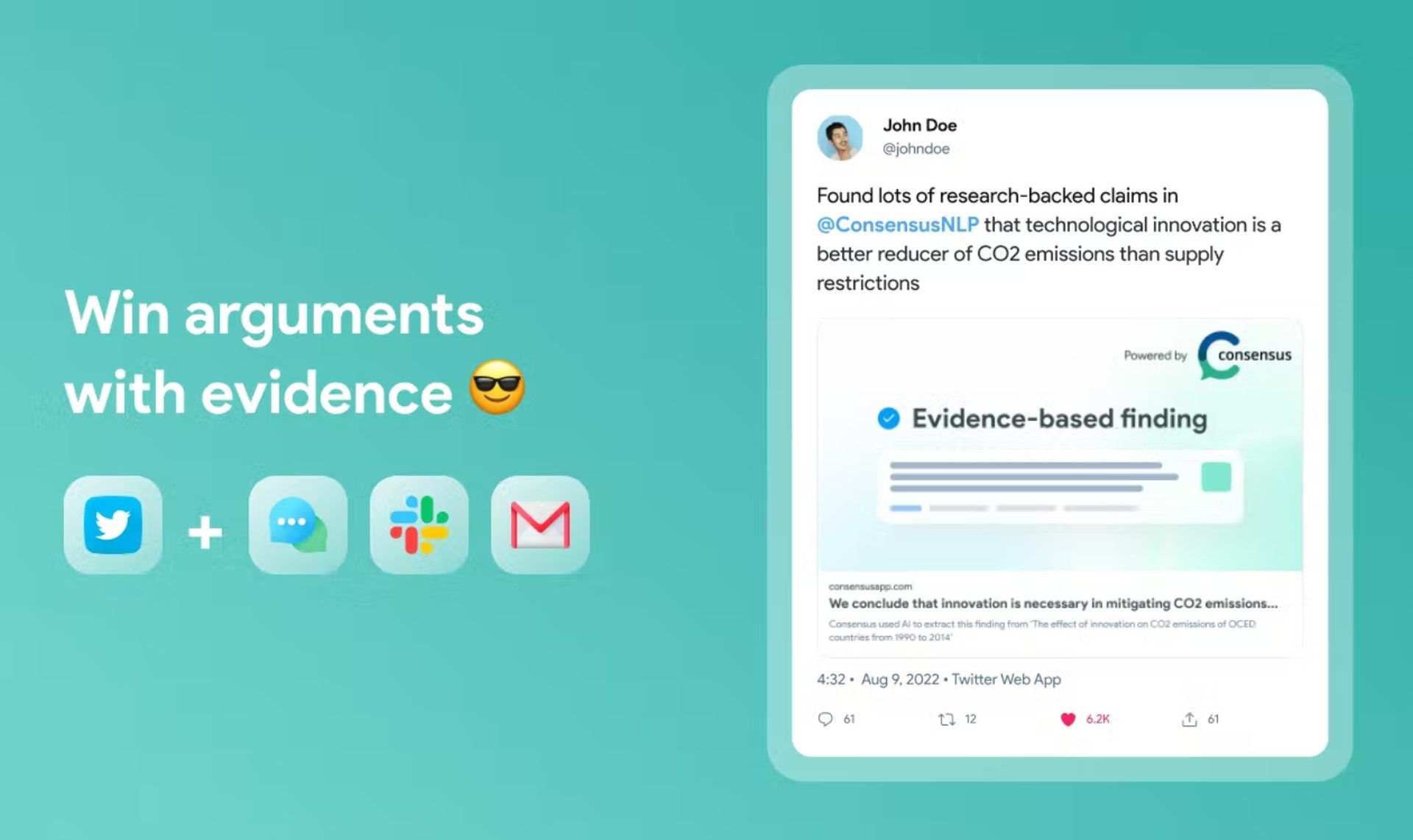
- Fast and reliable search: By having AI do the bulk of the work, you can save time that would otherwise be spent scanning content. The company claims that Consensus AI can identify the most important aspects of a subject and then bring them to the surface.
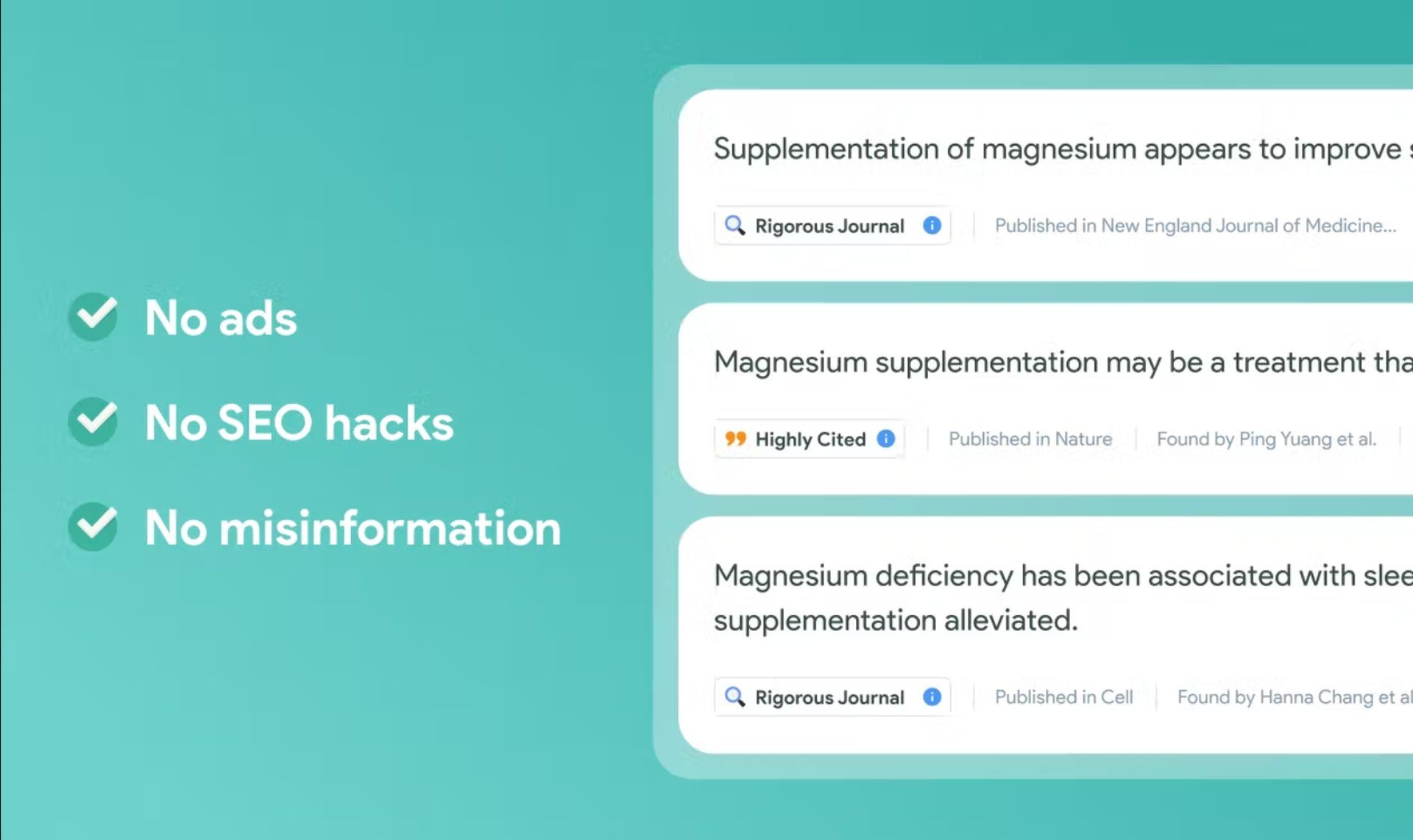
- Ad-Free: Since that, they claim it will never have adverts, users can rest assured that they are getting accurate data.
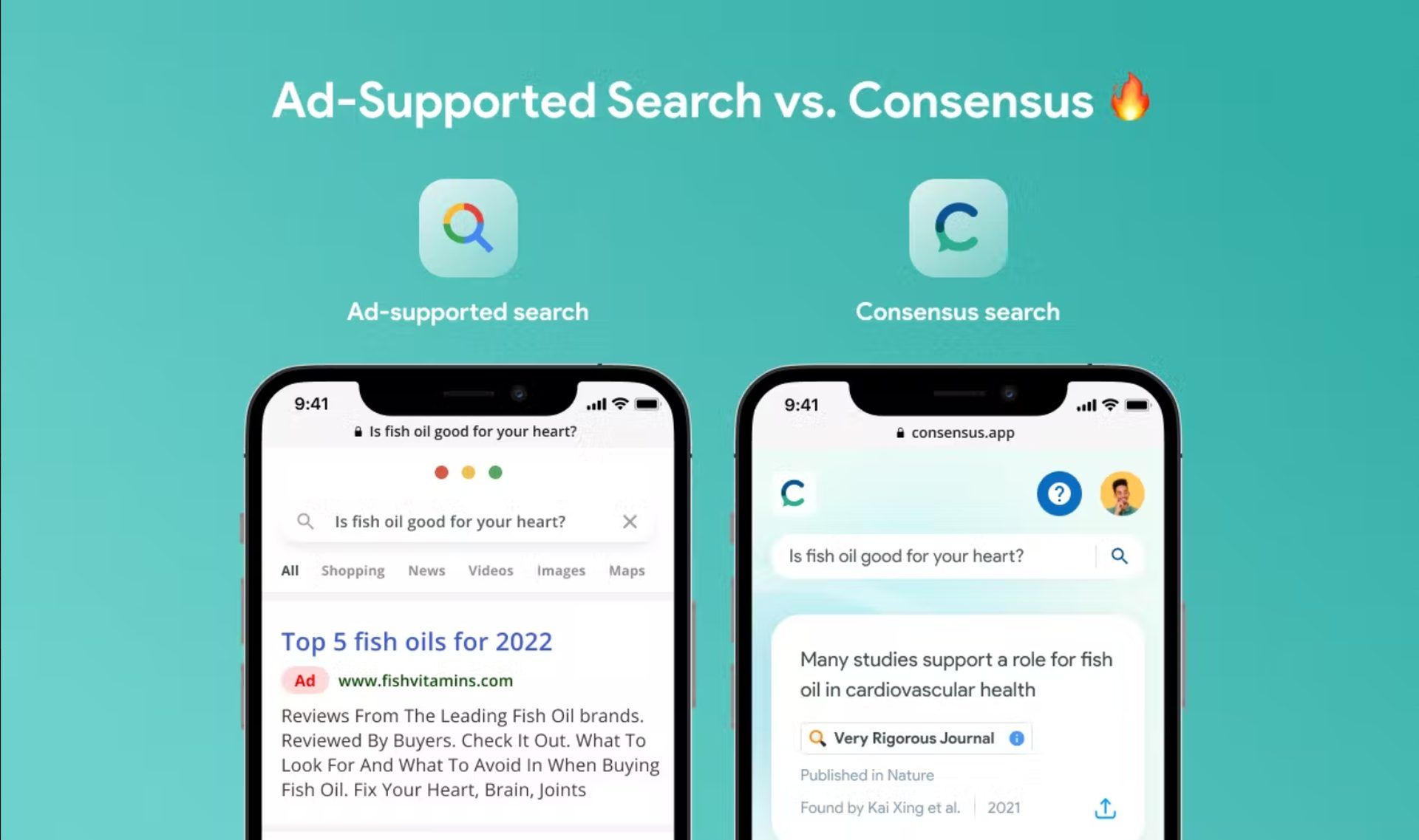
So, what can you do with these benefits?
Consensus AI search engine features
Consensus AI has three unique features:
- AI-powered academic search
- GPT-4 summary
- Consensus Meter
Consensus AI aims to provide users with unbiased and accurate information from diverse and reliable sources while avoiding misinformation, manipulation, and censorship.
Let’s take a closer look at its features briefly.
AI-powered academic search
Have you ever wondered what scientists have found? Ask Consensus a question, and it will immediately sift through millions of academic publications to find the answer with references and finding from studies.
Consensus AI allows users to customize their search preferences, filter results by various criteria, and provide feedback and ratings on the web pages they visit.
GPT-4 summary
Consensus’ latest GPT-4-driven tool makes scientific summaries easy. The model will select the most pertinent answers to your question and include them in the summary of the top 5-10 results.
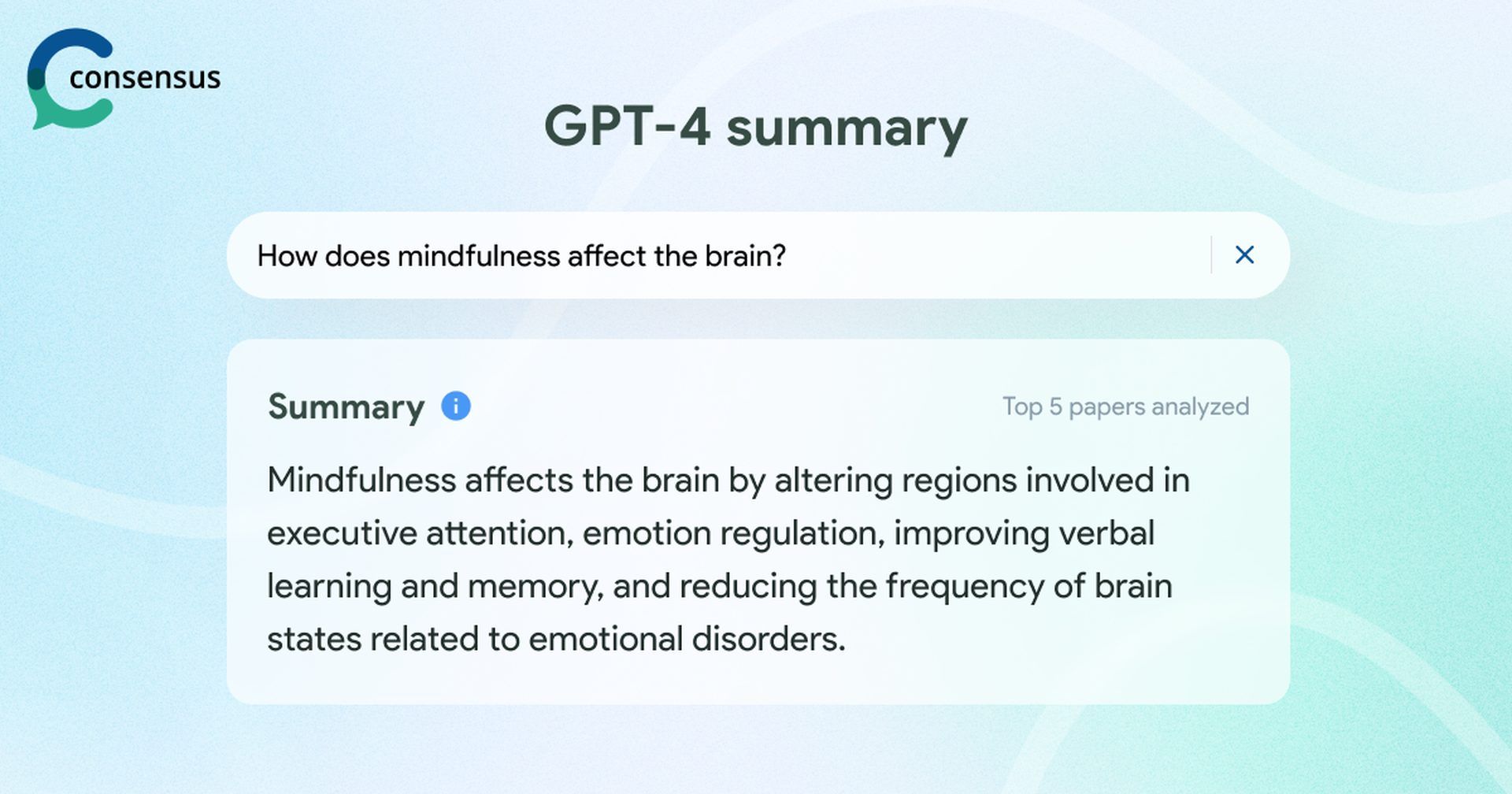
Furthermore, unlike some popular chatbots, the underlying results that drive the summary will be presented underneath the summary box, and they will all come from reputable journal articles.
Consensus Meter
Wondering what the community thinks about your topic? Try Consensus Meter! Using large language models, the Consensus Meter can quickly and cleanly collect responses to “Yes/No” questions and display them as “yes,” “no,” or “possibly.”
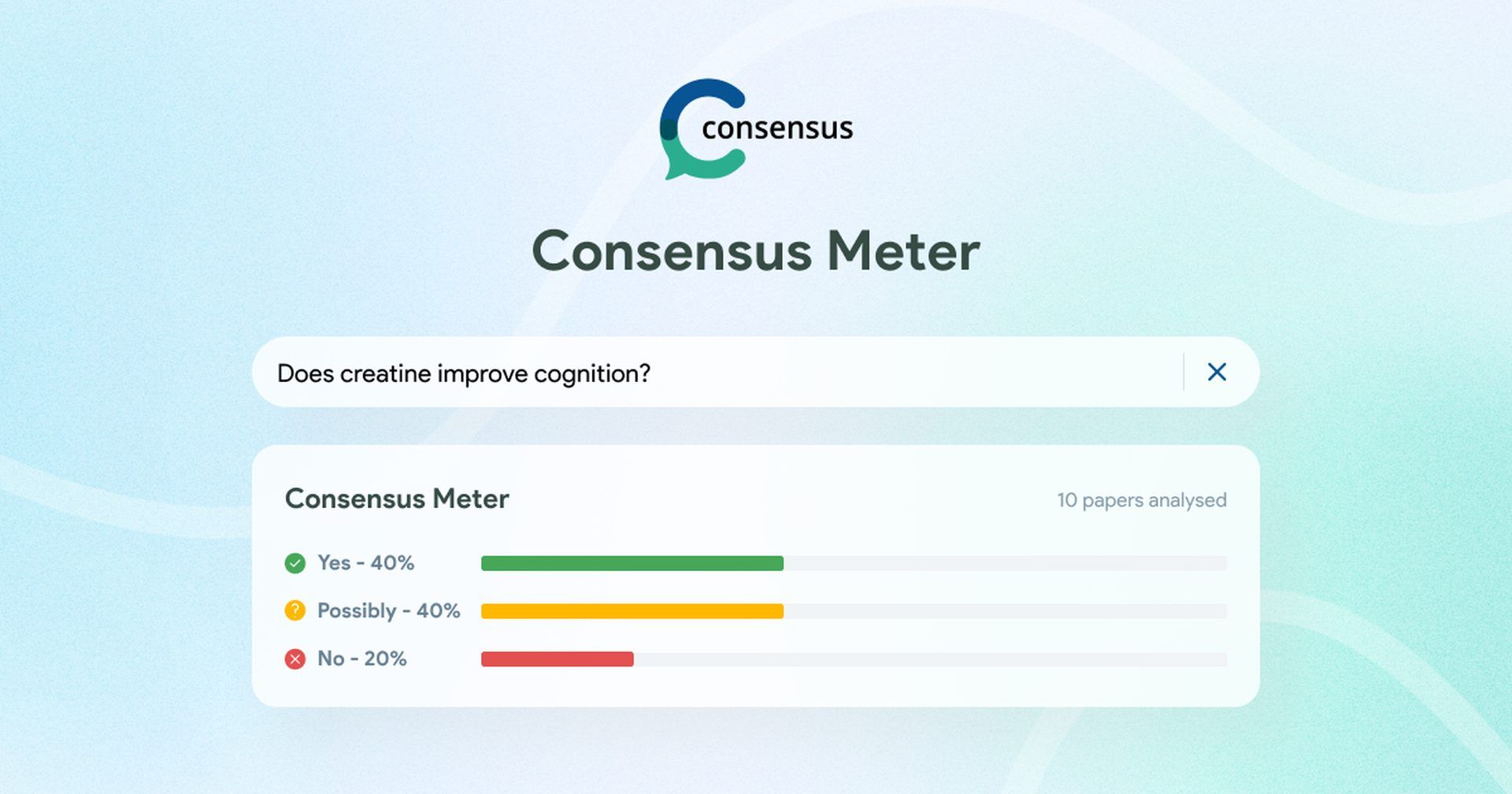
The first 20 results will be measured, and only those that the model determines to be sufficiently relevant to your question will be classified.
The Consensus AI search engine is still in beta, so the service is constantly being updated and expanded.
How to use the Consensus AI search engine?
Follow these steps to use Consensus AI search:
- Visit the Consensus AI search engine
- In order to do a search on the website, a user must first create an account.
- Enter your question to try out Consensus at no cost.
That’s all! You can subscribe to their blog, share your findings with others, make suggestions for future posts, or get in touch with them in any number of other ways.
“Scientific research is the most valuable, insight-filled source of data to ever exist. Yet, the current consumers of this information are the same people who are creating it. We are striving to build the tools that democratize scientific evidence and make the world a better place, by making it a more informed place.”
-Consensus

Image courtesy: Consensus
AI 101
Are you new to AI? You can still get on the AI train! We have created a detailed AI glossary for the most commonly used artificial intelligence terms and explain the basics of artificial intelligence as well as the risks and benefits of AI. Feel free the use them. Learning how to use AI is a game changer!
Other AI tools we have reviewed
Almost every day, a new tool, model, or feature pops up and changes our lives, like the new OpenAI ChatGPT plugins, and we have already reviewed some of the best ones:
- Text-to-text AI tools
Do you want to learn how to use ChatGPT effectively? We have some tips and tricks for you without switching to ChatGPT Plus! When you want to use the AI tool, you can get errors like “ChatGPT is at capacity right now” and “too many requests in 1-hour try again later”. Yes, they are really annoying errors, but don’t worry; we know how to fix them.
- Text-to-image AI tools
While there are still some debates about artificial intelligence-generated images, people are still looking for the best AI art generators. Will AI replace designers? Keep reading and find out.
- Other AI tools
Do you want more tools? Check out the best free AI art generators.





